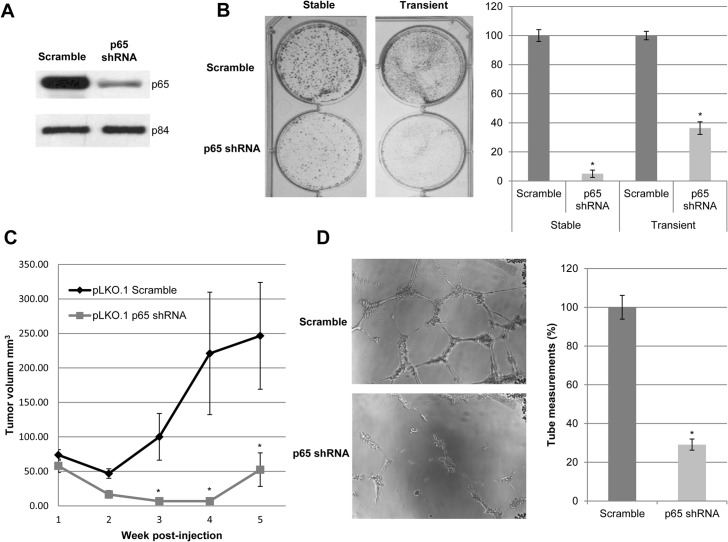Fig 1. Knockdown of p65 reduces the abilities of in vitro colony formation, in vivo tumor formation, and angiogenesis in NPC.
(A) Western blot analysis shows the transient shRNA-mediated knockdown of p65 in HONE1 cells using shRNA. The p84 serves as a loading control. (B) Two-dimensional (2D) colony formation assay shows that stable and transient knockdown of p65 reduces the number of colonies formed compared to scramble-transduced HONE1 cells. Data represented on the bar graph is the average of triplicate experiments ± S.E.M. (C) Nude mice were inoculated subcutaneously with p65 shRNA and scramble HONE1 cells. p65 shRNA-transduced cells showed delayed and reduced tumor growth compared to scramble control cells. Each data point represents an average tumor volume of six injection sites inoculated for each cell population ± S.E.M. (D) HUVEC tube formation is abrogated with p65 shRNA conditioned medium compared to the scramble control conditioned medium from HONE1 cells. The bar charts indicate data obtained from an average of triplicate experiments ± S.E.M. The (*) indicates P-value < 0.05 for all graphs.

